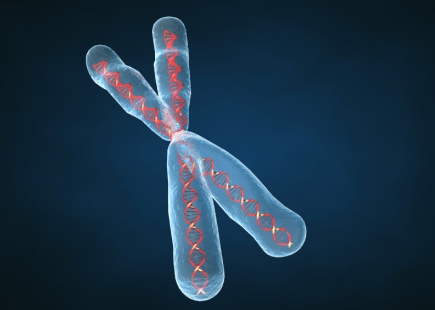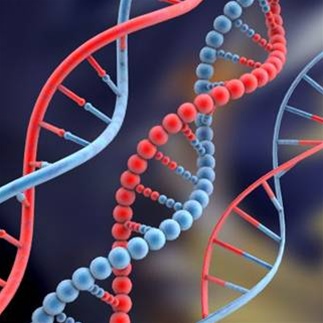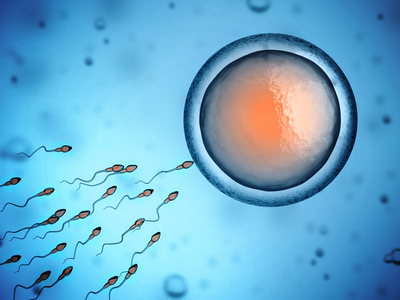|
People have always been interested in heredity and patterns of inheritance of various traits. Everyone knows that hair color, eye color, height, skin color, the presence or absence of certain traits are passed on from parents to children in accordance with certain patterns.

With the development of science and methods of studying the human genetic apparatus, it was possible to establish that genes are discrete units, to clarify some of the laws of inheritance, and to study the mechanisms of storage, reproduction, and use of hereditary information by living organisms. With the discovery of the structure and functions of deoxyribonucleic acid (DNA), genetics finally moved into the category of exact sciences, which allowed us to reach a completely different level of understanding of the emergence and development of a large number of diseases that can be inherited or, at least, the predisposition to which can be genetically determined.
Today, it has become technically possible to identify individual genes or DNA sequences responsible for the onset of certain diseases. Thus, each person can find out which mutated (defective) genes he or she carries, can assess the risk of a certain hereditary disease in future descendants, and thus take a prudent approach to child planning to
 minimize the risk of serious genetic defects, the presence of which creates great medical and socio-economic difficulties. Moreover, there are diagnostic methods that determine the presence or absence of a mutation (polymorphism of a single gene) with extreme accuracy and establish, or (in the case of an already established clinical diagnosis), reliably confirm or deny the presence of a disease. Moreover, genetically determined peculiarities of metabolism and neutralization of certain substances, pharmaceuticals, detoxification of foreign chemicals (xenobiotics) can be studied in detail using genetic methods that establish metabolic disorders, changes in the activity (both increase and decrease) of enzymes, etc. This determines the effectiveness of the use of medicines, their toxicity or safety, nutritional patterns and the elimination of toxic substances (e.g., the elimination of alcohol in the liver). minimize the risk of serious genetic defects, the presence of which creates great medical and socio-economic difficulties. Moreover, there are diagnostic methods that determine the presence or absence of a mutation (polymorphism of a single gene) with extreme accuracy and establish, or (in the case of an already established clinical diagnosis), reliably confirm or deny the presence of a disease. Moreover, genetically determined peculiarities of metabolism and neutralization of certain substances, pharmaceuticals, detoxification of foreign chemicals (xenobiotics) can be studied in detail using genetic methods that establish metabolic disorders, changes in the activity (both increase and decrease) of enzymes, etc. This determines the effectiveness of the use of medicines, their toxicity or safety, nutritional patterns and the elimination of toxic substances (e.g., the elimination of alcohol in the liver). The possibilities of medical genetics as a science are not limited to this.
 To date, thousands of genes have been identified to be involved in the onset and progression of numerous so-called polygenic diseases, including coronary heart disease, atherosclerosis, hypertension, diabetes mellitus (types I and II), breast, lung, prostate, stomach, colon, and neurodegenerative diseases (Alzheimer's, Parkinson's, and others). The study of polygenic diseases allows us to establish the relative risk of the disease in comparison with the overall risk in the population. Thus, a patient can get accurate information about the increased likelihood of contracting a dangerous, potentially fatal, or disabling disease long before the first symptoms appear, and thus take measures for prevention or early diagnosis when treatment options are still relatively high. In addition, there is an opportunity to influence other risk factors, the elimination of which can significantly reduce the likelihood of developing the disease. To date, thousands of genes have been identified to be involved in the onset and progression of numerous so-called polygenic diseases, including coronary heart disease, atherosclerosis, hypertension, diabetes mellitus (types I and II), breast, lung, prostate, stomach, colon, and neurodegenerative diseases (Alzheimer's, Parkinson's, and others). The study of polygenic diseases allows us to establish the relative risk of the disease in comparison with the overall risk in the population. Thus, a patient can get accurate information about the increased likelihood of contracting a dangerous, potentially fatal, or disabling disease long before the first symptoms appear, and thus take measures for prevention or early diagnosis when treatment options are still relatively high. In addition, there is an opportunity to influence other risk factors, the elimination of which can significantly reduce the likelihood of developing the disease. After receiving detailed information about their genes, some people may be very shocked or depressed, knowing about the
 increased risk of the disease or the likelihood of passing on defective increased risk of the disease or the likelihood of passing on defective  genes to their offspring. However, it should be understood that any information about one's own genetics can be a serious inducer of rescue and prevention mechanisms. It should also be borne in mind that no genetic diagnosis is an inevitable sentence. At the same time, the elimination of other risk factors (those that can be modified) in the vast majority of cases can prevent the progression of the disease and the development of complications. genes to their offspring. However, it should be understood that any information about one's own genetics can be a serious inducer of rescue and prevention mechanisms. It should also be borne in mind that no genetic diagnosis is an inevitable sentence. At the same time, the elimination of other risk factors (those that can be modified) in the vast majority of cases can prevent the progression of the disease and the development of complications. Thus, modern advances in genetics open up great opportunities for accurate and reliable diagnosis and a virtually unlimited choice of means of preventing or early treatment of many diseases and their complications.
|